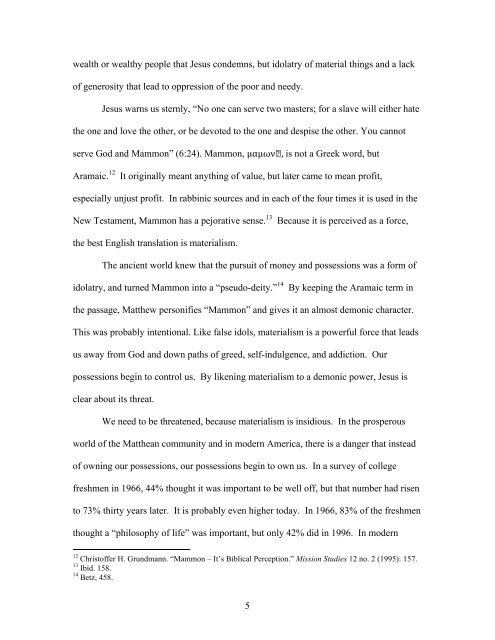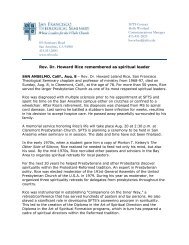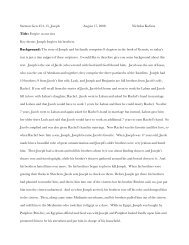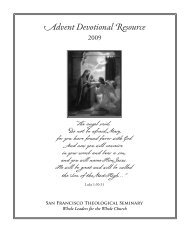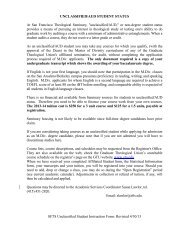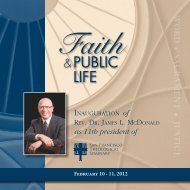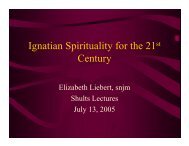Bev Franco Essay - San Francisco Theological Seminary
Bev Franco Essay - San Francisco Theological Seminary
Bev Franco Essay - San Francisco Theological Seminary
You also want an ePaper? Increase the reach of your titles
YUMPU automatically turns print PDFs into web optimized ePapers that Google loves.
wealth or wealthy people that Jesus condemns, but idolatry of material things and a lack<br />
of generosity that lead to oppression of the poor and needy.<br />
Jesus warns us sternly, “No one can serve two masters; for a slave will either hate<br />
the one and love the other, or be devoted to the one and despise the other. You cannot<br />
serve God and Mammon” (6:24). Mammon, μαμων , is not a Greek word, but<br />
Aramaic. 12 It originally meant anything of value, but later came to mean profit,<br />
especially unjust profit. In rabbinic sources and in each of the four times it is used in the<br />
New Testament, Mammon has a pejorative sense. 13<br />
Because it is perceived as a force,<br />
the best English translation is materialism.<br />
The ancient world knew that the pursuit of money and possessions was a form of<br />
idolatry, and turned Mammon into a “pseudo-deity.” 14 By keeping the Aramaic term in<br />
the passage, Matthew personifies “Mammon” and gives it an almost demonic character.<br />
This was probably intentional. Like false idols, materialism is a powerful force that leads<br />
us away from God and down paths of greed, self-indulgence, and addiction. Our<br />
possessions begin to control us. By likening materialism to a demonic power, Jesus is<br />
clear about its threat.<br />
We need to be threatened, because materialism is insidious. In the prosperous<br />
world of the Matthean community and in modern America, there is a danger that instead<br />
of owning our possessions, our possessions begin to own us. In a survey of college<br />
freshmen in 1966, 44% thought it was important to be well off, but that number had risen<br />
to 73% thirty years later. It is probably even higher today. In 1966, 83% of the freshmen<br />
thought a “philosophy of life” was important, but only 42% did in 1996. In modern<br />
12 Christoffer H. Grundmann. “Mammon – It’s Biblical Perception.” Mission Studies 12 no. 2 (1995): 157.<br />
13 Ibid. 158.<br />
14 Betz, 458.<br />
5


